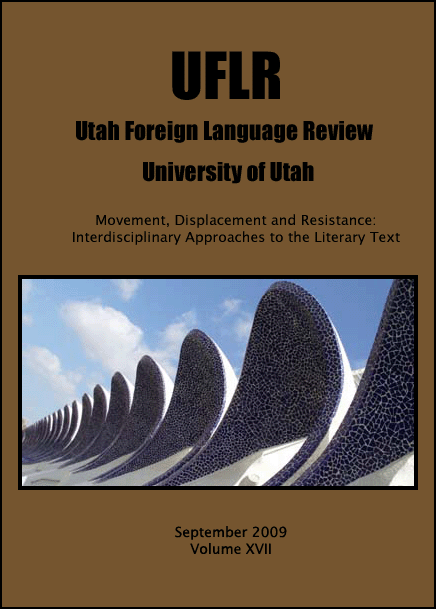Marriage and Migration: How Nuptial Traditions Shape the Migratory Experience
Abstract
This paper will explore the complex nature of the migratory experience of Africans to Spain by focusing on two texts written by the Equatorial Guinean author Donato Ndongo- Bidyogo. The fundamental question Ndongo-Bidyogo addresses is why so many young Africans try to immigrate to Europe, a place where they are considered outsiders. While in 1965, at the age of fifteen, Ndongo-Bidyogo migrated from Equatorial Guinea to Spain to continue his studies, many young Africans of today‟s generation are fleeing for a variety of reasons. Instead of settling on simple economic factors to explain migration, the short story “El sueño” and the novel El metro focus on the cultural traditions and social pressures that contribute to the phenomenon. In this paper, I will argue the constant movement of so many Africans out of their homelands subverts their accepted understanding of the traditional world as a place of an ideal past. The traditional worldview must be redefined and repositioned alongside the modern paradigm in order to reflect the global and interconnected world system. Until this occurs, young Africans like those depicted in the texts, will continue to feel constrained and tempted to head elsewhere for better opportunities.Keywords
UFLR is released under a Creative Commons Attribution-NoDerivs 3.0 Unported License:
Attribution — You must attribute the work in the manner specified by the author or licensor (but not in any way that suggests that they endorse you or your use of the work).
No Derivative Works — You may not alter, transform, or build upon this work.
For more information on the Creative Commons Attribution-NoDerivs 3.0 Unported License, please visit: http://creativecommons.org/licenses/by-nd/3.0/
UFLR does not retain any copyright to the authors' original work. As per the Creative Commons Attribution-NoDerivs 3.0 Unported License, you may may use portions of the articles published herein with proper attribution as published in UFLR. As UFLR does not retain the copyright to the author's original work, anyone interested in republishing or altering the original work in any way must contact the author or indicated right holder directly for permission.



